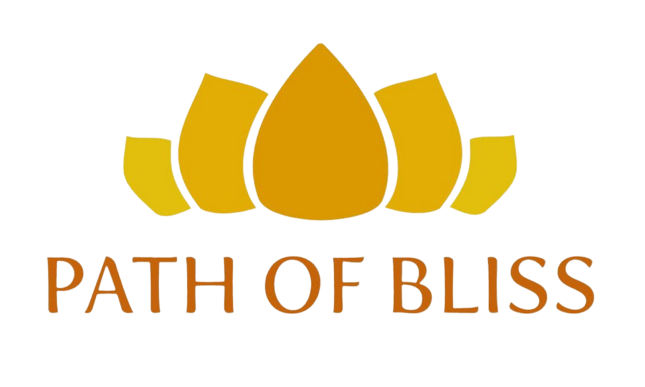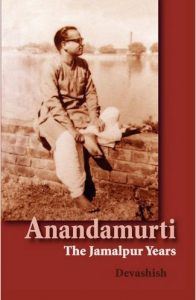
PRABHAT RANJAN SARKAR
(SHRII SHRII ANANDAMURTI)
Modern writer, philosopher, scientist, social theorist, and spiritual leader, Prabhat Ranjan Sarkar has attracted a following in more than 130 countries. His books have been translated into all the world’s major languages, and his unique blend of historical perspective and social commentary has been the inspiration for social activists seeking progressive alternatives to capitalism and communism.
From his early childhood in Bihar, India, where he was born in 1921, Prabhat Ranjan Sarkar has been attracting others by his deep love for humanity and guiding them along the path of self-realization. Adjusting the ancient science of Tantra Yoga to meet the needs of this age, he developed a scientific and rational philosophy (based on the immanence and transcendence of God) and taught a system of practical spiritual disciplines for physical, mental and spiritual development. Recognizing him as a spiritually realized master, his followers called him Shrii Shrii Anandamurti, which means “He who attracts others as the embodiment of bliss”, or simply “Baba” (father).
Those who followed his teachings found their lives transformed as they overcame the weaknesses and negative tendencies of the mind to experience a deep peace and bliss within. Inspired by his selfless example, they focused their efforts on serving the society and elevating the oppressed.
Path of Bliss / Ánanda Márga
In 1955, while still leading a normal life as a railway official, Prabhat Ranjan Sarkar formed the first organization called Ánanda Márga Pracáraka Saḿgha (“the Society to Propagate the Path of Bliss”) with the twin purposes of spiritual progress and social change. To this end, he began training missionaries to spread his teachings of “Self-realization and service to humanity” all over India and later throughout the world. Reflecting the broadness of his universal vision, Ánanda Márga Pracáraka Saḿgha subsequently became a multi-faceted organization with different branches dedicated to the upliftment of humanity through education, relief, welfare, the arts, ecology, intellectual renaissance, women’s emancipation, and humanistic economy.
In 1963, he established the Education, Relief and Welfare Section (ERAWS), which runs schools, orphanages, medical units, retirement homes, free kitchens, drug rehabilitation centers and homes for shelterless women throughout the globe. The Ánanda Márga Universal Relief Team (AMURT) has rendered disaster relief in fire, flood, typhoon, earthquake and war, and received numerous citations from the United Nations, the Red Cross and many governments.
Contributions to the Fields of Humanities, Linguistics, Science and the Arts
In the field of ecology and environmental awareness, Sarkar propounded the philosophy of Neo-Humanism, expanding the spirit of humanism to include love for animals, plants and the inanimate. He started a global plant exchange program to save and propagate thousands of plant species, and encouraged the establishment of animal sanctuaries in various locations around the world.
In the realm of philology and linguistics, Prabhat Ranjan Sarkar wrote numerous volumes on the Bengali and Sanskrit languages, which trace the evolution of words, phrases and cultural traditions that comprise today’s tapestry of Indian languages, as well as new and important insights into Indo-European and other languages of the world.
In the field of science, Sarkar introduced the theory of Microvita, which has subsequently captured the interest of scientists around the world. In a series of groundbreaking discourses, Sarkar struck at the heart of conventional physics and biology, pointing out that the basic buildings blocks of life are Microvita – emanations of pure consciousness. The Microvita theory provides a link between the worlds of perception and conception and implies that the distinct disciplines of physics, biology, and mathematics will merge into one science of understanding the real nature of the universe.
In the fields of music, literature and art, Sarkar urged artists to produce art for service and blessedness rather than merely “art for art’s sake”, and gave guidelines for achieving this goal. Sarkar not only wrote long philosophical treatises, but enriched us as well with children’s stories, fiction, comedy and drama. His most dramatic contribution is the 5018 songs known as Prabhat Samgiita (Songs of the New Dawn) which he composed from September of 1982 until his departure in October 1990. These beautiful songs express the spiritual feelings and universality of the human heart. Most of the songs were written in Sarkar’s mother tongue, Bengali, and Bengali scholars have bestowed on them the highest praise for their poetic and symbolic expression.
Socio-Economic Justice
For the collective welfare of the entire universe, Sarkar propounded PROUT (the Progressive Utilization Theory), which stands for the maximum utilization and rational distribution of all the resources and potentialities of the world – physical, mental, and spiritual – and the creation of a new, humanistic social order of harmony and justice for all based on Neo-Humanism, the principle of love for all beings of the universe.
His demands for social justice, and his uncompromising moral stand against corruption and exploitation, brought about the opposition of certain vested interests which resulted in the persecution of Ánanda Márga and his own arrest in 1971 under false charges. During his seven-year incarceration, he survived a poisoning attempt by government officials and fasted on a liquid diet for over five years in protest. Ultimately acquitted of all charges by the high court, he was eventually released from prison in 1978. From then until his physical departure in 1990, he continued to guide the rapid expansion of Ananda Marga all over the world.
Beaconlight of the Future
Prabhat Ranjan Sarkar wrote over 100 books on subjects as diverse as mysticism, cosmology, sociology, history, education, yoga, medicine, ethics, psychology, humanities, linguistics, economics, ecology, farming, music and literature. He delivered several thousand discourses and composed over 5000 mystical songs. He taught the science of meditation for self-realization directly and indirectly to millions of people. But most importantly, through his personal example, profound philosophy, systematic spiritual practices and far-reaching service projects, he has been – and continues to be so to this day – the sole inspirational drive for the universal mission of Ánanda Márga “Path of Bliss”.


